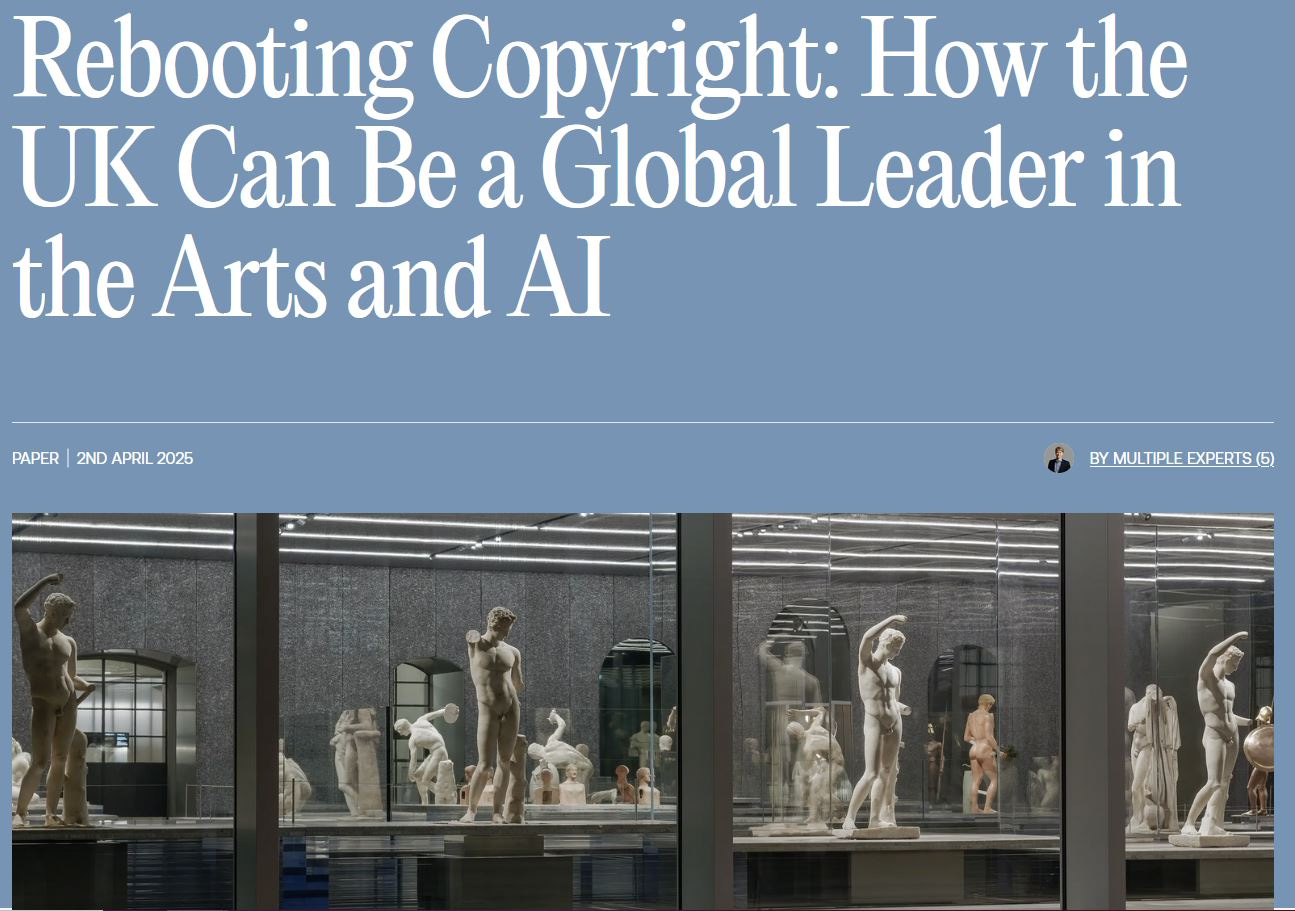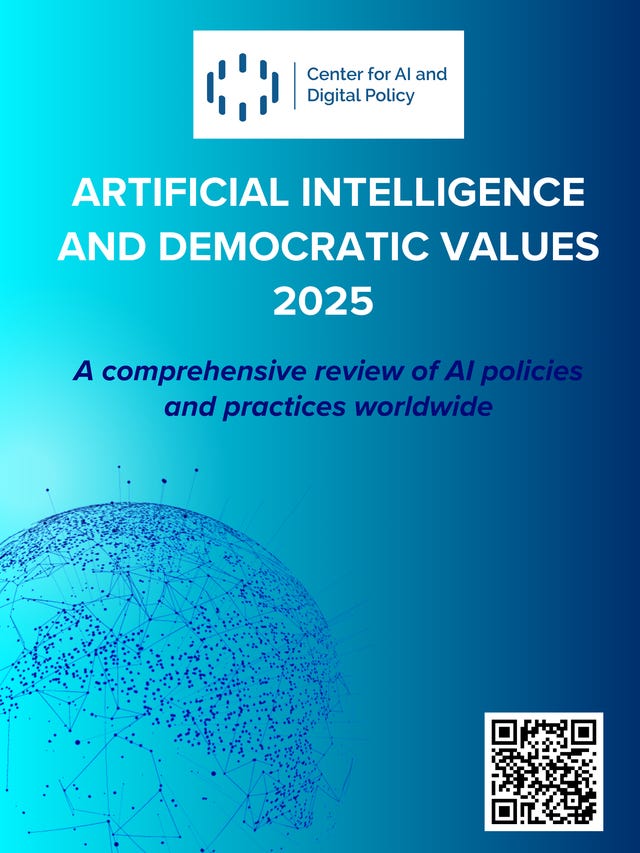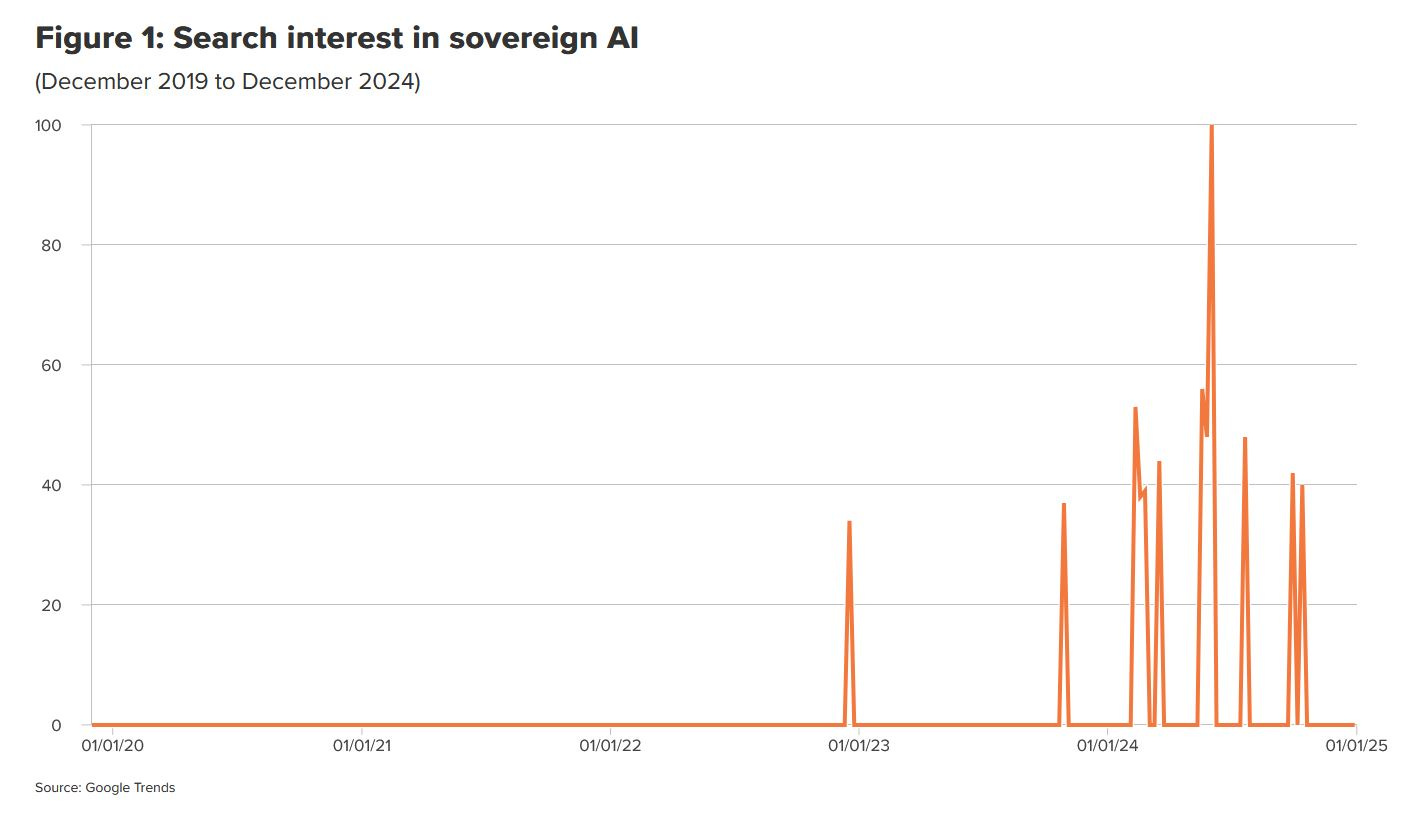🤖 AI Policy this week #047. AI and copyright at the center of the scene in the UK and Korea; new guidance for use and acquisition in the US.
A quick summary of news, reports and events discussing the present and future of AI and the governance framework around its development.
Everybody is concerned about tariffs, even some debating weather or not US President Donald Trump’s formula announced last week involved AI -see here and here-, and their impact on the global economy (and the stock market). AI Policy debates, however, keep running: copyright is a key concern in the UK, where there had been a public consultation, while in Korea KMCA started a 0% AI policy to register musical works. The first steps from a regulatory change in the EU towards AI have effects: RSF withdraws from negotiations on European AI Act’s Code of Practice.
1. News
Trump White House releases guidance for AI use, acquisition in government.
The White House Office of Management and Budget released a pair of memos to provide agencies with guardrails for how they use and purchase artificial intelligence in the government, replacing Biden administration guidance but maintaining some of the same structures. The first new memo (M-25-21) provides guardrails for use and replaces Biden’s directive on the same topic (M-24-10). That document states agencies are to focus on three priorities when accelerating the federal use of AI — innovation, governance and public trust — which align with an executive order on the technology from the first Trump administration. The second memo on AI acquisition (M-25-22) replaces the Biden OMB’s guidance on government purchasing of the tech (M-24-18).
Korea Music Copyright Association Bans Registration of AI-Generated Musical Works.
The Korea Music Copyright Association (KMCA) implemented a new procedure for registering a song, requiring songwriters to verify they did not use AI. The new measure reaffirms the Korean government’s stance that AI-generated music cannot be copyrighted. It went into effect on March 24, mandating that songwriters confirm they have 100% contributed to writing the song without the use of generative artificial intelligence. Notably, the KMCA confirmed the criteria for not using AI does refer to “zero percent” contribution. “[Songwriters] are consenting to taking legal liability for any civic or criminal legal proceedings that may accompany false registration,” said the organization, adding that those who do not consent will have their registration placed on hold.
Spain Selects 12 High-Risk AI Systems for First Regulatory Sandbox.
The Spanish government has chosen 12 high-risk AI systems from 44 applicants to participate in its first artificial intelligence regulatory sandbox. The initiative aims to develop technical guidelines to ensure compliance with EU AI regulations and improve European standards. Selected projects span sectors like healthcare, biometrics, and critical infrastructure, with participants receiving training and support to adapt their systems to upcoming legal requirements.
RSF withdraws from negotiations on European AI Act’s Code of Practice.
On 11 March 2025, the European AI Office published the third working version of the AI Act's Code of Practice. According to RSF, “the verdict is unequivocal: issues concerning the information space have gradually been removed from what is supposed to be a self-regulation tool for AI developers, designed to demonstrate their adherence to the principles outlined in the AI Act”. That is why the organization “has decided to slam the door on an exercise now doomed to fail. The Code does not contain a single concrete provision to combat the proven dangers AI poses to accessing reliable information”, as mentioned by Thibaut Bruttin, RSF Director General.
EU AI Office opened a survey on living repository of AI literacy practices.
The European Artificial Intelligence (AI) Office opened a survey on AI literacy practices to inform the living repository fostering learning and exchange on AI literacy. The consultation seeks to gather a broad range of AI literacy practices from organisations to encourage the exchange of knowledge and support the implementation of Article 4 of the European Union AI Act. The Article mandates that providers and deployers of AI systems ensure a sufficient level of AI literacy among their staff and those operating the systems, considering factors like technical knowledge, experience, and the context of AI use. The consultation is open to all organisations engaged in AI literacy initiatives, and the survey aims to broaden representation and facilitate knowledge-sharing among AI providers and deployers.
India VP Dhankhar stresses need for AI regulation, transparency, and ethics.
India Vice President Jagdeep Dhankhar was addressing a gathering on the release of the book 'AI on Trial' authored by Member of Rajya Sabha, Sujeet Kumar, at Vice-President's Enclave. VP Dhankhar emphasised the need to regulate AI while maintaining the right balance between regulation and fostering innovation. "Regulation of AI will determine the kind of society we aspire to be. It has become a most important factor where we will be! Do we wish to become a digital dystopia where humans serve algorithms or a humane Indian society where technology serves the people? The choice is ours. The choice is well known," VP Dhankar noted.
2. Reports, Briefs and Opinion Pieces:
“Rebooting Copyright: How the UK Can Be a Global Leader in the Arts and AI”, by the Tony Blair Institute.
“In this report, the Tony Blair Institute for Global Change outlines an ambitious programme for cementing the UK’s leadership in frontier-AI development and the creative industries. In doing so, we take the government’s proposal for a TDM exception with opting out as a starting point. This proposal has come under fire for several reasons. Some question whether the technical tools to enable and enforce the opt-out mechanism are sufficiently robust, while others argue that any commercial TDM exception would cross a red line. While a TDM exception with opt-out will require careful implementation to be effective, we believe it is sound policy for legal, economic and geopolitical reasons”.
“AI and Democratic Values 2025” by the Center for AI and Digital Policy.
The AI and Democratic Values Index is a comprehensive review of AI policies and practices worldwide. Prepared by the Research Group of the Center for AI and Digital Policy, AIDV provides the basis to compare national AI policies, to assess progress, and to identify emerging trends. CAIDP has published the report annually since 2021, and this is its fifth edition.
“Sovereign remedies: Between AI autonomy and control”, by the Atlantic Council.
“Sovereign AI has gained a foothold in several capitals around the world” (...) However, there remains a critical gap: analysis of stated goals for these initiatives and what the core pillars of sovereign AI are, distinct from related concepts”, writes Trisha Ray, associate director and resident fellow at the Atlantic Council’s GeoTech Center.
3. Events:
America’s AI Moonshot: The Economics of AI, Data Centers, and Power Consumption (Apr 1st, Washington DC, US).
The US House of Representatives Committee on Oversight and Government Reform Subcommittee on Economic Growth, Energy Policy, and Regulatory Affairs hosted this hearing.
Thanks for reading, please share any comments and see you next week.






